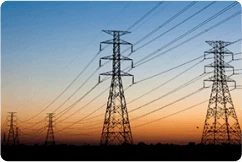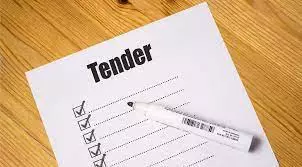- Country: Ireland
- Summary: Evaluation of CVA Food Security
- IET Ref No: 102590637
- Deadline: 01 Jul 2024
- Financier: Other Funding Agencies
- Purchaser Ownership: Government
- Tender Value: Refer Document
- Notice Type: Tender
- Document Ref. No.: DUB-MEV-27775-v2
- Purchaser's Detail:Login to see full purchaser details. Login to see full purchaser details. Login to see full purchaser details. Login to see full purchaser details. Login to see full purchaser details. Login to see full purchaser details. Login to see full purchaser details. Login to see full purchaser details. Login to see full purchaser details.
- Description:
- Quotation are invited for Evaluation of CVA Food Security. Closing Date: 1 Jul 2024 Type: Consultancy Themes: Agriculture/Shelter and Non-Food Items Evaluation of GOAL-s CVA for food security 2019-to date Terms of Reference March 2024 Background CVA (Cash and Voucher Assistance) refers to projects where cash transfers or vouchers for goods or services are provided to individuals, households, or community recipients. It is a form of assistance, not a result in itself. The recipients use CVA to meet their needs and make a difference to their lives. CVA can be used on its own, or as complementary to services and in-kind assistance. CVA can be used to achieve outcomes such as enabling people to meet their basic needs, health, water and sanitation, food, nutrition, shelter, protection etc. This evaluation is primarily focused on the achievement of improved food security outcomes by GOAL-s CVA with the view to document best practice and make recommendations for improvements and scale up. It is globally accepted that assistance transferred in the form of cash and vouchers (particularly cash) can be more efficient, effective, and better for people and markets compared to other forms of assistance. It is fast becoming the modality of choice for a growing number of donors. A report by the Global Public Policy Institute estimated that cash assistance is appropriate in 70%-80% of all humanitarian crises. The rapid growth of CVA in crisis and fragile settings where GOAL works, means that CVA is a ‘must-have- in its programming toolbox. By integrating and expanding quality CVA in GOAL-s programming, GOAL places itself on the radar of CVA oriented donors as a CVA ready partner. GOAL-s work on CVA In 2019, GOAL delivered approximately €31.28 million in CVA out of which €24.5 million was in vouchers from Syria in a single programme. Although most of GOAL-s CVA monetary value was distributed through vouchers, cash is overwhelmingly the most frequently used modality across GOAL. Likewise, GOAL reaches twice as many people through cash rather than vouchers. In 2021, 26% of GOAL-s grants contained CVA. CVA and food security programming more broadly generates by far the largest number of communications to our Community Feedback Mechanism (CFM), beneficiary selection and verification as well as community engagement with GOAL. All of GOAL-s country offices have experience of using CVA, however there are variations in the frequency which CVA is utilised in programming and the quality of design and implementation. As mentioned above, GOAL uses CVA to achieve various outcomes, but the focus of this evaluation will be on improved food security including on the quality of design and implementation of CVA for such outcomes. Other achievements and positive or negative consequences intended or unintended can also be documented. Objectives of the evaluation Describe the scale of GOAL-s CVA for improved food security of the last five years mapping out geographic spread, number of projects, intervention type, expenditure, and reach. Assess and document the relevance, effectiveness, impact, and efficiency of GOAL-s CVA into improved food security over the last four years. Make recommendations, as appropriate, for improvements and scale up of GOAL-s CVA for improved food security in the current and other geographical locations. Evaluation questions Some of the key evaluation questions to be address include, but are not limited to: What is the scale of GOAL-s CVA for improved food security? Its geographical spread, the number of projects implemented over the last four years, the type of interventions, expenditure, and beneficiary reach? Have the objectives and design of CVA responded to food security needs of beneficiaries, global, country(ies), and partners as well as food security policies, and priorities, and have they continued to do so if/when circumstances changed? What is demonstrable from the CFM? What other needs have they responded to, if any? Has CVA achieved, or it is expected to achieve, food security objectives, and results (e.g., improved household food consumption score, diet diversification, etc), including any differential results across groups (sex, age, disability, refugee/IDP/host population)? What other objectives and results, if any? Has CVA generated or is it expected to generate significant positive or negative, intended, or unintended, higher-level effects in food security among participating communities? What other areas, if any? Has CVA delivered, or is likely to deliver, results in the most cost effective and timely way as compared to feasible alternatives in the context? What technologies were used, if any? Are there any recommendations for improvement and scale up of CVA regarding food security, or other areas, in the current and other geographical locations? Evaluation tasks In consultation with GOAL-s Evaluation Commissioning Manager, Head of MEAL (Monitoring, Evaluation, Accountability and Learning): Refine the evaluation objectives and primary evaluation questions as per the ToR (Terms of References) Incorporate specific evaluation questions regarding strategic programme areas and pilot activities undertaken, as appropriate Devise and test a methodology and evaluation tools to address the specific objectives and individual research questions of the evaluation Conduct secondary data collection and research, including using GOAL-s existing project monitoring data, evaluations (if relevant) and donor reports to identify gaps in data coverage and knowledge Collect primary data to establish GOAL-s performance against selected programme indicators and the evaluation criteria outlined above Provide a draft report that will be incorporated into ongoing and future programme planning, with recommendations for improvements and scale up in the current and other geographical locations Incorporate GOAL-s feedback into the draft report and prepare a final report (with an Executive Summary that can be used as a stand-alone document) which describes the findings of the evaluation, and provides actionable recommendations Facilitate a workshop to share the findings of the evaluation with GOAL, partner staff and other stakeholders Methodology A recommended methodology is outlined below, but the final methodology and tools to be used will be determined by the evaluation team in consultation with Head of MEAL and will be contingent on the above tasks. GOAL recommends a mixed methods approach that can quantify impact of the programme and achievements against food security targets and indicators while qualitatively outlining how these were achieved and what can be learnt from them. Field visits are suggested in 1-2 in the countries where GOAL operates CVA (e.g., but not limited to, Zimbabwe, Honduras). Planning Before arriving in country(ies), the evaluation team may do the following: Review key internal and external documents, analysis of data as appropriate Propose the appropriate methodology to be developed for the context to evaluate the existing projects and address the evaluation criteria above Prepare an outline of the data collection methods that are required and the relevant survey templates and participatory data collection guides to be used for data collection Develop a work plan consisting of key milestones required for data collection for any logistics support to be arranged, if necessary, by the MEAL Coordinator(s) On arrival in-country(ies), the evaluation team may: Hold a short planning meeting with the MEAL Coordinator(s) and relevant programme team(s), to review and amend the questions as needed for the data collection tools Liaise with the MEAL Coordinator(s) on the training and recruitment of the data collection staff and the use of mobile data collection for the proposed survey tools and qualitative guides Hold a brief workshop with GOAL local Senior Management Team(s) to communicate evaluation questions and methods proposed. Post-site visit Data analysis, report development and finalisation, prepare summary of findings and hold the workshop Primary data collection To the greatest extent possible, the evaluation should consider both beneficiaries and non-beneficiaries, examining any potential positive or negative spill over effects. While quantitative methods such as household surveys, observation checklists, and physical testing are desirable for the measurement of indicators, GOAL expects a balance of quantitative and qualitative methods to better understand the mechanisms that produce certain results or may hinder greater results. Data analysis GOAL expects all quantitative data to be rigorously analysed and representative of the project area within the reasonable limits and constraints of the context. Qualitative data should also be rigorously analysed and primarily focus on developing a deeper understanding about the relevance of the programme, and providing recommendations for improving or strengthening the impact, effectiveness, and sustainability of the programme. Presentation and documentation of findings and recommendations The evaluation may start in July 2024, although this can change as long as the final approved report is submitted by end of November 2024. The findings of the evaluation must be shared with GOAL in the following formats: Draft Evaluation Report submitted to GOAL-s Evaluation Commissioning Manager and MEAL Coordinator(s), Programme Director(s) of the country(ies) assessed for feedback and comments, two weeks after conclusion of field visit(s). Final Evaluation Report must be clear and concise and the following sections must be included as a minimum: Executive Summary, Literature Review, Methodology, Analysis of Findings, Recommendations, Annexes: TORs, a list of individuals interviewed, statistical outputs, templates of data collection tools used, a descr
- Documents:
If you are registered member, kindly login to view full details of this tender notice:
CLICK HERE TO LOGINEvaluation of CVA Food Security - Ireland Tender
The GOAL, a Government sector organization in Ireland, has announced a new tender for Evaluation of CVA Food Security. This tender is published on IrelandTenders under IET Ref No: 102590637 and is categorized as a Tender. Interested and eligible suppliers are invited to participate by reviewing the tender documents and submitting their bids before the deadline on 2024-07-01.
The estimated tender value is Refer Document, and full details, including technical specifications and submission requirements, are provided in the official tender documents. Ensure all submissions meet the criteria outlined to be considered for evaluation.




